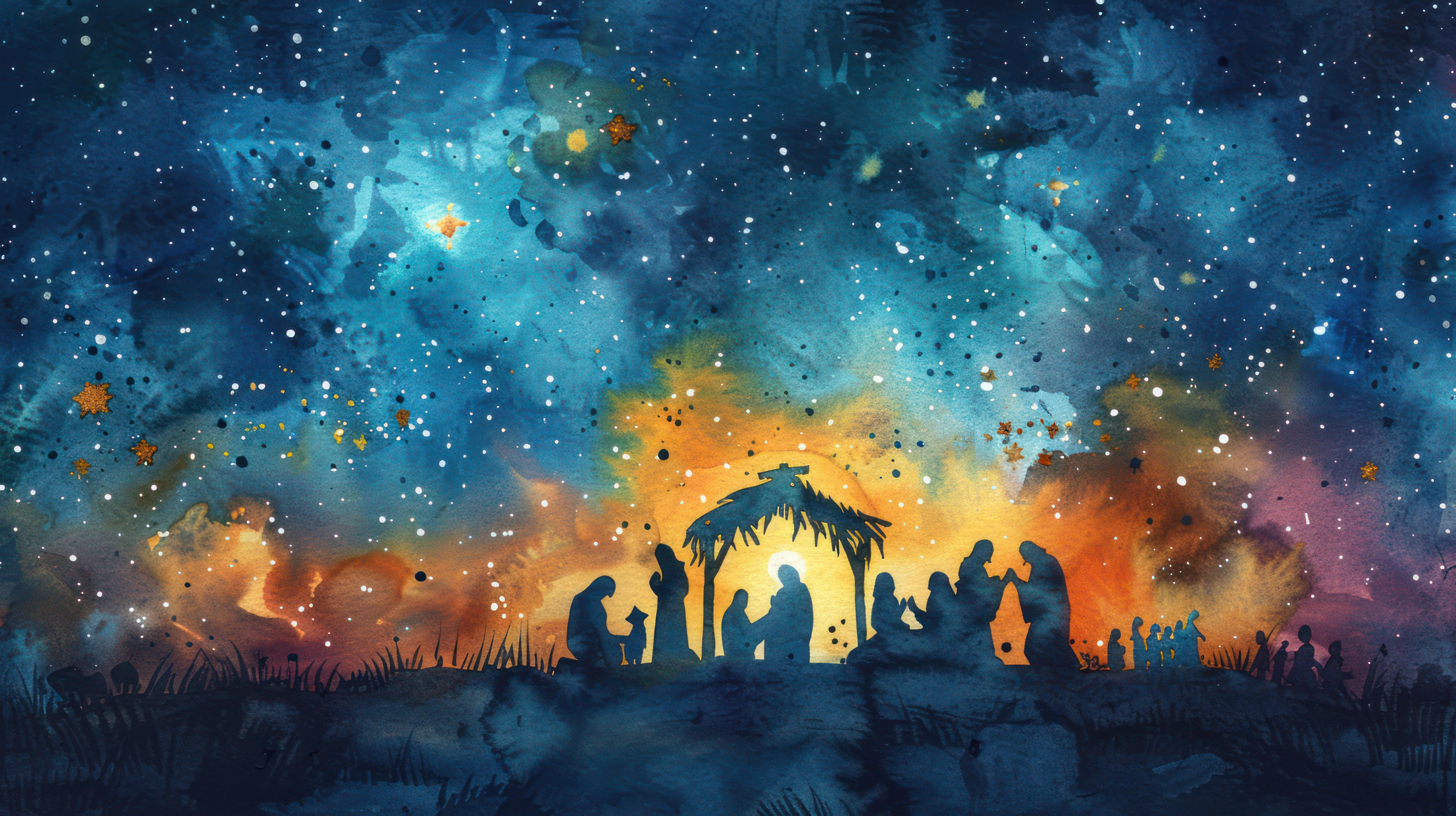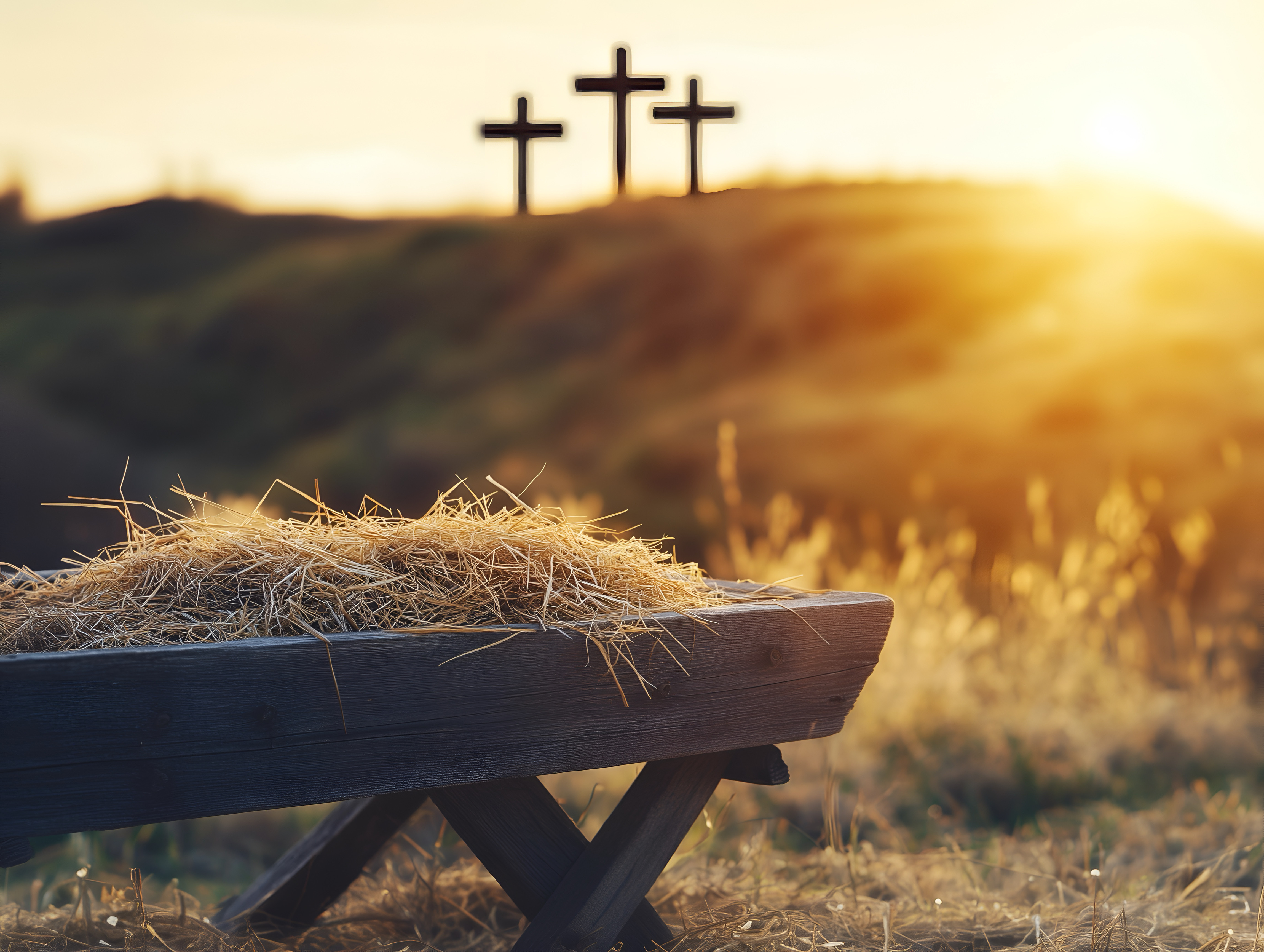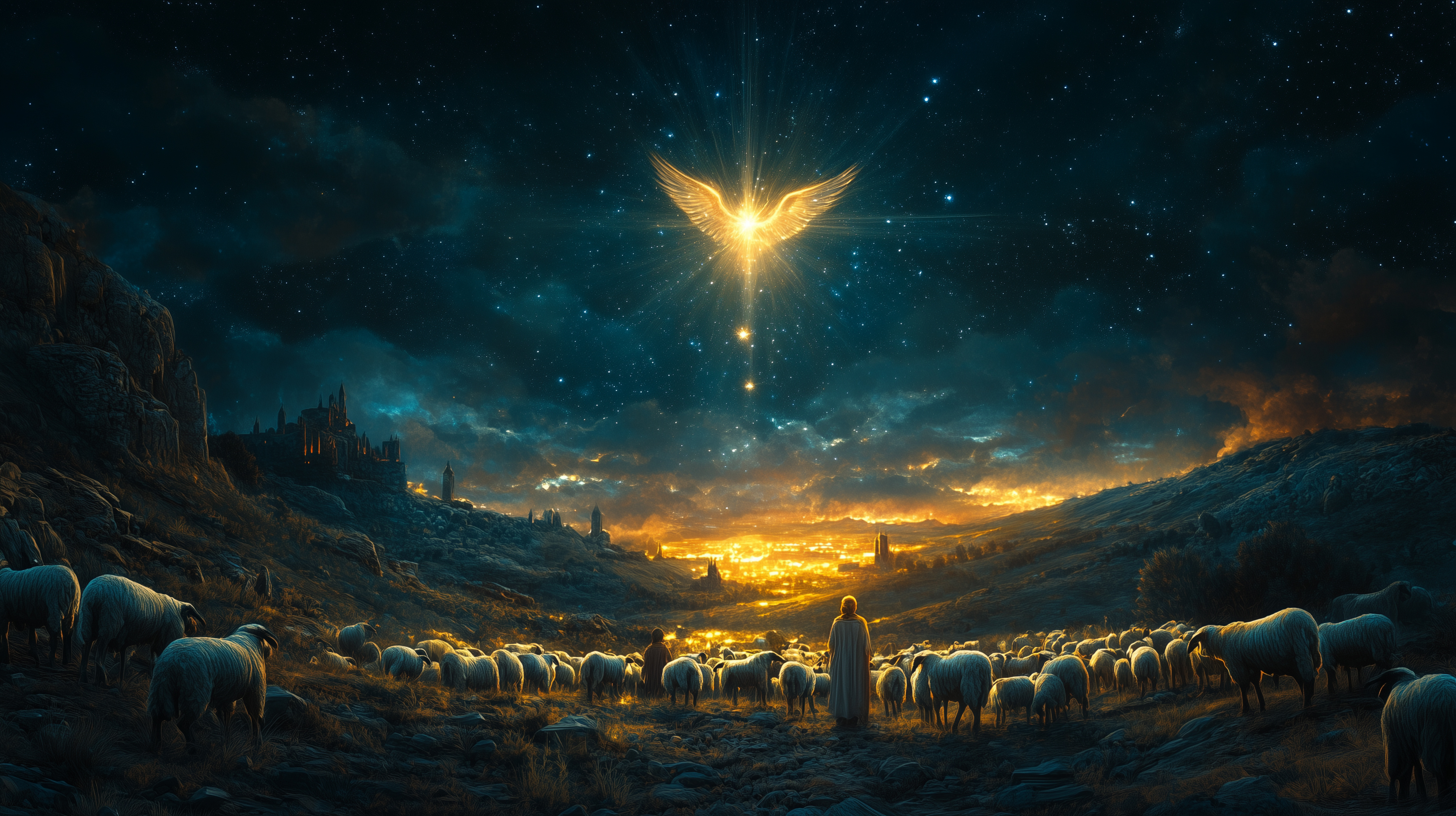
Between Two Advents
Published December 19, 2024
“How many more sleeps until Christmas?” asks the young child still grappling with the concept of time. The entire Christmas season builds tremendous anticipation for a single day, an anticipation felt by “kids from one to ninety-two.” Children and chipmunks alike proclaim, “We can hardly stand the wait, please Christmas don’t be late.” Christmas has always been a season of anticipation. Even before the Christmas Industrial Complex (or Big Santa) turned Christmas into a commercial racket that starts right after Halloween, there was a season of Christmas preparation called Advent. Advent was not originally designed for decorating, shopping, and baking, but for spiritual preparation. It is a time to both remember Christ’s first coming and anticipate His return.
Remembering the First Advent
It is almost unfathomable how long the people of God had to wait for their Messiah. When God promised a seed who would crush the head of the serpent (Gen. 3:15), could our first parents have imagined that this promised seed would not come for another four thousand years? After roughly two thousand years and two cataclysmic judgments (the flood and the Tower of Babel), the promise of a seed is repeated to Abraham—from him would come not only a great nation, but a seed, through whom all families of the earth would be blessed. Much could be said about the resulting nation of Israel, but the rest of their history in the Old Testament could be summarized as “mostly suffering caused by their own sinfulness.” If we fast forward to the time of Christ’s birth, we see a nation heavily oppressed under Roman occupation. The nation had returned from the Babylonian captivity roughly five hundred years earlier, but the kingdom was never restored to its former glory, and properly speaking was not a kingdom at all. The Israelites were exiles in their own land, first under Persian, then Greek, then Roman overlords. By the time of Jesus’s birth, the situation seemed hopeless. Still, they dared to hope. They hoped that God would intervene by sending a great military Messiah to deliver them from captivity because they perceived that this was their greatest need. They failed to recognize that their greatest need was actually salvation from sin.
The Israelites were not wrong to expect kingly Messiah who would overthrow all human kingdoms and rule over them from the throne of his father David, for this is what the Old Testament Scriptures promised. They just failed to recognize that the Messiah must first suffer and die in their place to atone for their sins. Before the crown there comes a cross to save the sinners who were lost. While the Israelites were undoubtedly wondering why the Messianic promises tarried in their fulfillment, God was demonstrating His faithfulness. The longer His people persisted in cycles of rebellion against Him, the more they demonstrated both their need for salvation and God’s goodness in providing it. God made an unconditional promise that He would send a Messiah, and no amount of unfaithfulness on their part would stop Him from keeping it. The more they sinned, the more brightly His grace shone. The more hopeless the situation, the more glorious the advent of the Son. After four thousand years of waiting, this long expected Jesus came to save His people from their sins.
Anticipating the Second Advent
Advent is not only a time for remembering Christ’s first coming, but also anticipating His second coming. Like those who were alive during Christ’s first advent, we have been waiting a long time for Christ’s return. In fact, there is roughly the same amount of time between Christ’s birth and the present as there is between Christ’s birth and the time of Abraham. However, we must recognize that Second Advent is unlike the first. Our situation is different than that which immediately preceded Christ’s first coming because His coming changed everything. We do not dwell in darkness, for the light of salvation has already come. Christ’s kingdom will not be fully consummated until He returns, but He has already inaugurated it with His first coming. The strong man has been bound and his house is being plundered as the Gospel is preached and souls are saved. The church that began with twelve men has spread around the world, with millions of members. Ironically, what we now wait for is what Israel of old thought they were waiting for—the establishment of God’s kingdom in the New Heavens and New Earth—because we have already received the salvation that they should have been waiting for. Our hearts cry “Maranatha!” as we long for the “day when our faith shall be sight,” yet in the mean time there is kingdom work to be done, work which will be successful because Jesus has promised that He will build His church, and the gates of hell will not prevail against it (Matt. 16:18).
Athanasius (c. 296-373), in his classic work On the Incarnation, gives an apologetic for the truthfulness of the gospel by pointing to its triumphal power:
“Throughout the whole inhabited world, human beings are deserting the superstition of idols, taking refuge in Christ, and worshipping him as God, and through him they know the Father, of whom they had been ignorant. And, what is amazing, is that while there were thousands of diverse objects of worship, and each place had its own idol, and that which was called a god by some had no power to pass over into the neighboring place to persuade those of the neighborhood to worship it, but was barely worshipped even among its own people—for no one worshipped his neighbor’s god, but each kept his own idol, thinking it to be the lord of all—only Christ is worshipped by all as one and everywhere the same. And what the weakness of idols could not do—persuade even those dwelling nearby—this Christ has done, persuading not only those nearby, but simply the entire inhabited world, to worship one and the same Lord, and through him God, his Father.”
Whether this argument is a persuasive apologetic is a matter of debate, but it is an excellent description of the change that Christ’s coming has wrought. Throughout history, every nation and household has had their own idols, and no one could be persuaded to worship anyone else’s God. Yet now, Christ is worshipped everywhere!
Christ’s return is our blessed hope, the sort of hope that leads to action. Therefore, as we wait for the Second Advent, let us preach the Gospel, for “it is the power of God for salvation to everyone who believes” (Rom. 1:16).
Conclusion
This advent season, let us reflect on what it means to wait. God’s people waited four thousand years for the light of gospel to shine on the darkness of this world. As those on whom that light has shined, we wait for Christ’s Second Advent. Our waiting is not passivity, but is gospel-preaching and disciple-making. “And while [the disciples] were gazing into heaven as [Jesus] went, behold, two men stood by them in white robes, and said, “Men of Galilee, why do you stand looking into heaven? This Jesus, who was taken up from you into heaven, will come in the same way as you saw him go into heaven” (Acts 1:10-11).
Merry Christmas!




0 Comments